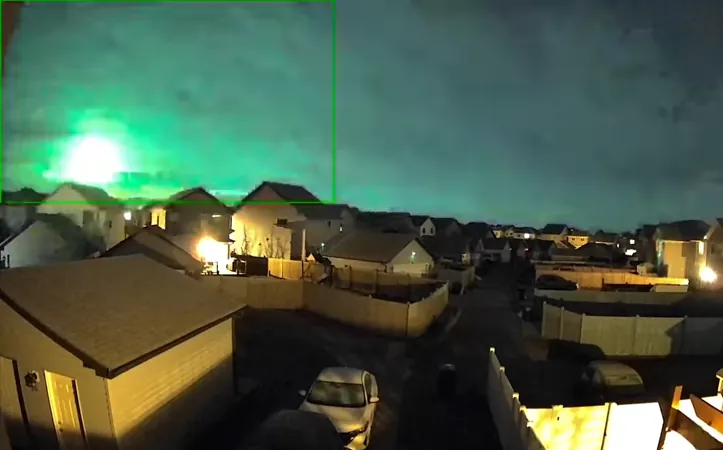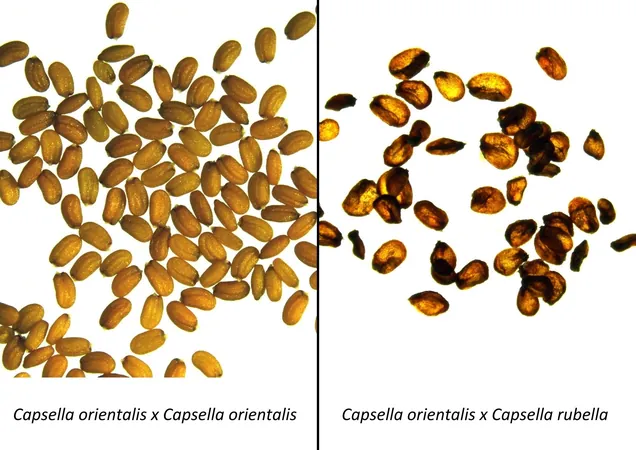
Google Introduces OpenAI-Compatible API for Gemini: A Game-Changer for Developers
2024-11-12
Author: Emily
Google Introduces OpenAI-Compatible API for Gemini: A Game-Changer for Developers
In an exciting development for developers relying on language models, Google has announced the launch of a new endpoint for its Gemini API that enables seamless switching for those previously using OpenAI's solutions. This new feature is particularly designed to ease the transition process, allowing developers to integrate Google’s Gemini models into their applications without major overhauls.
Though the Gemini API is still in beta, Google emphasizes that its latest endpoint provides a level of compatibility with OpenAI capabilities, albeit partially. With this new tool, developers using OpenAI’s SDK can simply replace their existing code to utilize Google’s models. This opens up unprecedented flexibility and accessibility in the rapidly evolving world of artificial intelligence.
How It Works
Here's how it works: When coding in Python with the OpenAI SDK, developers can swap their initialization code to leverage the Gemini API. For instance, the switch requires minimal effort: ```python from openai import OpenAI client = OpenAI(api_key="gemini_api_key", base_url="https://generativelanguage.googleapis.com/v1beta/openai/") ```
In this configuration, developers need a Gemini API key, which can either be hard-coded or configured within environment variables. The functionality includes generating text through the Chat Completions API. A sample snippet illustrates how you can elicit explanations from the model: ```python response = client.chat.completions.create( model="gemini-1.5-flash", n=1, messages=[ {"role": "system", "content": "You are a helpful assistant."}, {"role": "user", "content": "Explain to me how AI works"} ] ) print(response.choices[0].message) ```
Embeddings API Support
Moreover, the new Gemini API supports OpenAI's Embeddings API. This specific feature is crucial as it allows developers to gauge the similarity of text strings. By converting text into a numerical vector, users can conduct searches, cluster data, discover anomalies, and generate recommendations, enhancing overall project capabilities.
For instance, this is how you can leverage the Embeddings API with the Gemini endpoint: ```python response = client.embeddings.create(input="Your text string goes here", model="text-embedding-004") print(response.data[0].embedding) ```
Current Limitations and Future Directions
Currently, the capabilities of the Gemini API are limited to the Chat Completions API and the Embeddings API. Other features like image uploads and structured outputs are still in nascent phases of support. However, Google has hinted at plans to expand their API to encompass additional OpenAI functionalities, facilitating a more complete and versatile toolkit for developers. The timeline for these enhancements remains undisclosed, creating both anticipation and speculation within the community.
On platforms like Reddit, many commentators have welcomed Google's initiative as a potential antidote to the lock-in effect associated with OpenAI's API users. Yet, there's a consensus that further developments are necessary to establish a truly standardized API that would allow developers to switch freely between different AI model providers.
Conclusion
This groundbreaking step by Google not only enhances the accessibility of advanced AI technologies but also intensifies the competitive landscape, signaling a new era for developers who seek flexibility in their software solutions. As industry dynamics shift, it will be intriguing to see how both Google and OpenAI evolve in response to these changes.









 Brasil (PT)
Brasil (PT)
 Canada (EN)
Canada (EN)
 Chile (ES)
Chile (ES)
 España (ES)
España (ES)
 France (FR)
France (FR)
 Hong Kong (EN)
Hong Kong (EN)
 Italia (IT)
Italia (IT)
 日本 (JA)
日本 (JA)
 Magyarország (HU)
Magyarország (HU)
 Norge (NO)
Norge (NO)
 Polska (PL)
Polska (PL)
 Schweiz (DE)
Schweiz (DE)
 Singapore (EN)
Singapore (EN)
 Sverige (SV)
Sverige (SV)
 Suomi (FI)
Suomi (FI)
 Türkiye (TR)
Türkiye (TR)